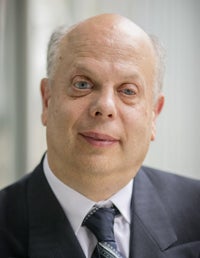Bahareh Sarrafzadeh, PhD candidate
David R. Cheriton School of Computer Science
Email triage involves going through unhandled emails and deciding what to do with them. This familiar process can become increasingly challenging as the number of unhandled email grows. During a triage session, users commonly defer handling emails that they cannot immediately deal with to later. These deferred emails, are often related to tasks that are postponed until the user has more time or the right information to deal with them.
Lili Mou, Postdoctoral fellow
University of Waterloo
Francis Poulin, Department of Applied Mathematics
University of Waterloo
Years ago I co-designed a course called Environmental Informatics, AMATH/EARTH 310, which has since disappeared. The idea of this course was to bring applied math and earth science students together to learn about problems that overlap these two fields. One topic that I taught was chaos.
Ke Nian, PhD candidate
David R. Cheriton School of Computer Science
Linguan Yang, PhD candidate
David R. Cheriton School of Computer Science
Ana Klimovic, Electrical Engineering Department
Stanford University
Matthew Amy, PhD candidate
David R. Cheriton School of Computer Science
The design and compilation of correct, efficient quantum circuits is integral to the future operation of quantum computers. This thesis makes contributions to the problems of optimizing and verifying quantum circuits, with an emphasis on the development of formal models for such purposes. We also present software implementations of these methods, which together form a full stack of tools for the design of optimized, formally verified quantum oracles.
Xiao-Ping Zhang, Department of Electrical, Computer & Biomedical Engineering
Ryerson University
Eunsol Choi, Paul G. Allen School of Computer Science
University of Washington
Real world entities such as people, organizations and countries play a critical role in text. Reading offers rich explicit and implicit information about these entities, such as the categories they belong to, relationships they have with other entities, and events they participate in.
Students, researchers, and entrepreneurs interested in robotics and artificial intelligence are invited to an information session on campus to learn about the ANA Avatar XPRIZE competition.
Brandon Alcox, Master’s candidate
David R. Cheriton School of Computer Science
This thesis investigates the application of various fields of artificial intelligence to the domain of sports management and analysis. The research in this thesis is primarily focused on the entry draft for the National Hockey League, though many of the models proposed may be applied to other sports and leagues with minimal adjustments.
Eitan Grinspun, Associate Professor of Computer Science and Applied Mathematics
Columbia University
Blockbuster films depend on computational physics. The focus is on models that capture the qualitative, characteristic behavior of a mechanical system. Visual effects employ mathematical and computational models of hair, fur, skin, cloth, fire, granular media, and liquids. This is scientific computing with a twist. But techniques developed originally for film can also advance consumer products, biomedical research, and basic physical understanding.

David Lepofsky, LLB, Osgoode Hall Law School, LL.M, Harvard Law School
Chair, Accessibility for Ontarians with Disabilities Act Alliance
Adjunct Professor, Osgoode Hall Law School
Pedro Velmovitsky, Public Health and Health Systems
University of Waterloo
John Wittnebel, Master’s candidate
David R. Cheriton School of Computer Science
In this thesis, we study lower bounds on maximum matchings in 1-planar graphs. We expand upon the tools used for proofs of matching bounds in other classes of graphs as well as some original ideas in order to find these bounds. The first novel results we provide are lower bounds of maximum matching in 1-planar graphs as a function of their minimum degree.
Yashar Ganjali, Department of Computer Science
University of Toronto
Dan Wolczuk, Faculty of Mathematics
University of Waterloo
In educational psychology, the curse of knowledge refers to the phenomenon that individuals inherently assume that the people they are communicating with have the same knowledge and thought processes as they do.
In this seminar, we will discuss how the curse of knowledge can affect both instructors and students, and we will look at some strategies that instructors can use to try to counteract this and improve student learning.
Nolen Scaife, PhD candidate
Florida Institute for Cybersecurity, University of Florida
Credit, debit, and prepaid cards have dominated the payment landscape for decades, empowering the economy. Unfortunately, these legacy systems were not designed for today's adversarial environment, and deployment of new technologies is slow, expensive, and difficult to adopt.
Jose Serna, Master’s candidate
David R. Cheriton School of Computer Science
Christian Gorenflo, PhD candidate
David R. Cheriton School of Computer Science
Blockchain technologies are expected to make a significant impact on a variety of industries. However, one issue holding them back is their limited transaction throughput, especially compared to established solutions such as distributed database systems.
Verena Kantere
School of Electrical Engineering and Computer Science, University of Ottawa
Big Data analytics in science and industry are performed on a range of heterogeneous data stores, both traditional and modern, and on a diversity of query engines. Workflows are difficult to design and implement since they span a variety of systems. To reduce development time and processing costs, some automation is needed.
Anthony Anthony, Master’s candidate
David R. Cheriton School of Computer Science
Noah Murad, Master’s candidate
David R. Cheriton School of Computer Science
Si Chuang Li, Master’s candidate
David R. Cheriton School of Computer Science





